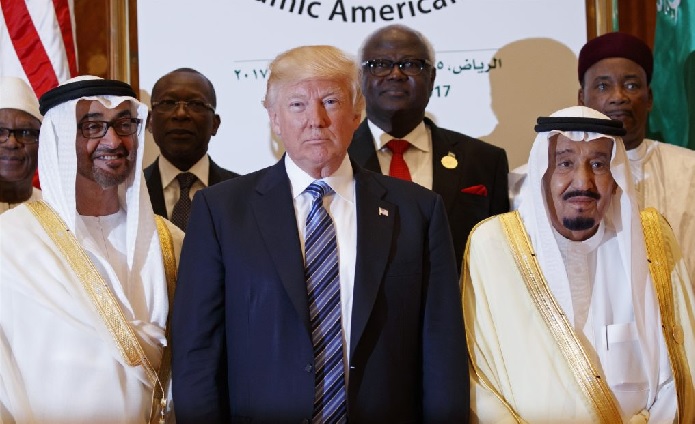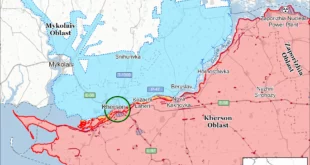
The Trump administration is pushing to resolve the three-year old rift between Qatar and several of its Gulf neighbors before the November U.S. election.
An end to the rift would invigorate the Trump administration’s efforts to isolate and pressure Iran.
The United Arab Emirates (UAE) is blocking a resolution of the dispute because of Qatar’s support for regional Muslim Brotherhood movements.
A July ruling by the International Court of Justice backed Qatar, potentially giving the UAE an opportunity to agree to end the dispute.
As the rift between Qatar and Saudi Arabia, UAE, and Bahrain passes its third anniversary, a confluence of interests and developments has provided opportunities to resolve the dispute. Since the rift began in June 2017 with the Saudi, Emirati and Bahraini denial of Qatar’s use of their airspace, land border crossings, and territorial waters, respectively, the Trump administration has sought, without success, to mediate a solution. All of the Gulf States involved in the rift are close partners of the United States, and all host military facilities that the United States uses to project power in the region and to contain and deter Iran. Kuwait and the Sultanate of Oman – which are part of the Gulf Cooperation Council (GCC) along with the four countries involved in the rift – are also key U.S. allies and have helped mediate in order to preserve the 40 year-old GCC alliance.
The intra-GCC rift has thus far prevented the Trump administration from announcing a new ‘Middle East Strategic Alliance’ (MESA), envisioned as a coalition of Sunni Arab states—centered on the GCC states—that can take the lead in containing the growing threat from Iran. U.S. efforts to reduce the Iranian threat have been historically popular on a bipartisan basis, although there have been differences within U.S. circles over the role of direct diplomatic engagement in mitigating that threat.
As the November 2020 election approaches, President Trump has stepped up his intermediation efforts, hoping to produce a diplomatic breakthrough that enables him to advertise a success in building a coalition against the United States’ perennial adversary, Iran. President Trump’s heightened involvement produced direct Saudi-Qatari talks in early 2020, raising hopes that a breakthrough was imminent. Although those talks broke down without an accord, reports in June 2020 indicated that a U.S. plan to resolve the dispute was again approaching fruition. The U.S. proposal envisioned, as a first step, the re-opening of the Saudi, Emirati, and Bahraini airspace to Qatar Airways, providing the added benefit of denying Tehran $130 million in yearly payments from the airline for overflight rights. The U.S. plan appeared to receive an indirect boost from a mid-July ruling by the International Court of Justice in Qatar’s favor on the country’s complaint that the denial of the three GCC states’ airspace to Qatari flights was a violation of international civil aviation law. The ruling could potentially give UAE leaders an opportunity to solve the dispute, if the leadership decides to accept a compromise solution.
However, the Trump administration does not appear able to overcome the objections of the UAE leadership to a solution that does not fully satisfy its core demands. The UAE continues to prevail on it key ally, Saudi Arabia, not to accept the U.S. plan to end the rift. Since the inception of the dispute, the UAE insists that any settlement requires Qatar to end its support for regional affiliates of the Muslim Brotherhood movement. The UAE, and particularly its de-facto leader Mohammad bin Zayid Al Nuhayyan (MBZ), perceives the movement as a threat to the regional status quo and to the hereditary power structure of the Gulf monarchies. Part of that demand has been for Qatar to sever its strategic relationship with Turkey which, like Qatar, has supported Brotherhood affiliates in Egypt, Libya, Syria, and elsewhere. Qatar has consistently refused to make significant concessions on its foreign policy, calling these demands an unacceptable infringement of its sovereignty. Qatar has long viewed the Brotherhood not as an insurgent movement but rather as a means of modernizing regional politics by incorporating Islamists into the peaceful political process. Yet, the UAE‘s refusal to accept a Trump administration-brokered solution to the rift risks driving a wedge between Abu Dhabi and Washington. Some in the White House might assess that the UAE’s hard line on Qatar is denying President Trump the opportunity to claim a significant diplomatic success in advance of the November vote on his re-election. If the UAE continues to lose its influence on the Administration, it might decide to accept a resolution of the intra-GCC rift, even if doing so requires compromising UAE maximalist positions.
 Eurasia Press & News
Eurasia Press & News



